Shopping Cart
Remove All Your shopping cart is currently empty
Your shopping cart is currently empty
Anti-GYS1 Antibody (7U169) is a Rabbit antibody targeting GYS1. Anti-GYS1 Antibody (7U169) can be used in FCM,ICC/IF,IHC,IP,WB.
| Pack Size | Price | USA Warehouse | Global Warehouse | Quantity |
|---|---|---|---|---|
| 50 μL | $296 | 7-10 days | 7-10 days | |
| 100 μL | $498 | 7-10 days | 7-10 days |
| Description | Anti-GYS1 Antibody (7U169) is a Rabbit antibody targeting GYS1. Anti-GYS1 Antibody (7U169) can be used in FCM,ICC/IF,IHC,IP,WB. |
| Synonyms | muscle, Gys 1, GYS, GSY, Glycogen synthase 1, Glycogen [starch] synthase |
| Ig Type | IgG |
| Clone | 7U169 |
| Reactivity | Human,Mouse,Rat |
| Verified Activity | 1. Western blot analysis of Glycogen synthase on Hela lysates using anti- Glycogen synthase antibody at 1/1,000 dilution. 2. Immunohistochemical analysis of paraffin-embedded mouse skeletal muscle tissue using anti-Glycogen synthase antibody. Counter stained with hematoxylin. 3. Immunohistochemical analysis of paraffin-embedded mouse prostate tissue using anti-Glycogen synthase antibody. Counter stained with hematoxylin. 4. ICC staining Glycogen synthase in PC-3M cells (green). The nuclear counter stain is DAPI (blue). Cells were fixed in paraformaldehyde, permeabilised with 0.25% Triton X100/PBS. 5. ICC staining Glycogen synthase in Hela cells (green). The nuclear counter stain is DAPI (blue). Cells were fixed in paraformaldehyde, permeabilised with 0.25% Triton X100/PBS. 6. ICC staining Glycogen synthase in NIH-3T3 cells (green). The nuclear counter stain is DAPI (blue). Cells were fixed in paraformaldehyde, permeabilised with 0.25% Triton X100/PBS. 7. Flow cytometric analysis of 293 cells with Glycogen synthase antibody at 1/50 dilution (red) compared with an unlabelled control (cells without incubation with primary antibody; black). Alexa Fluor 488-conjugated goat anti rabbit IgG was used as the secondary antibody. 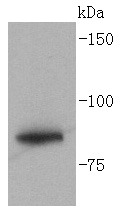 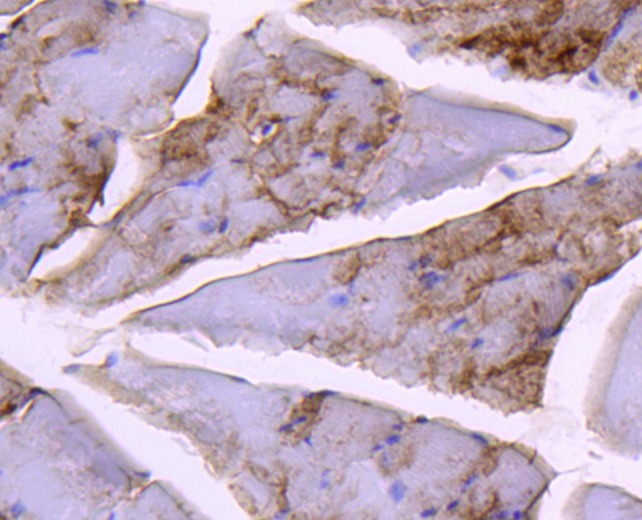 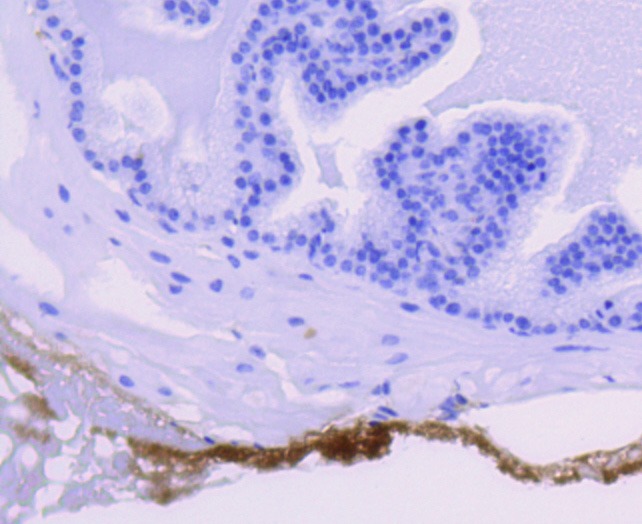 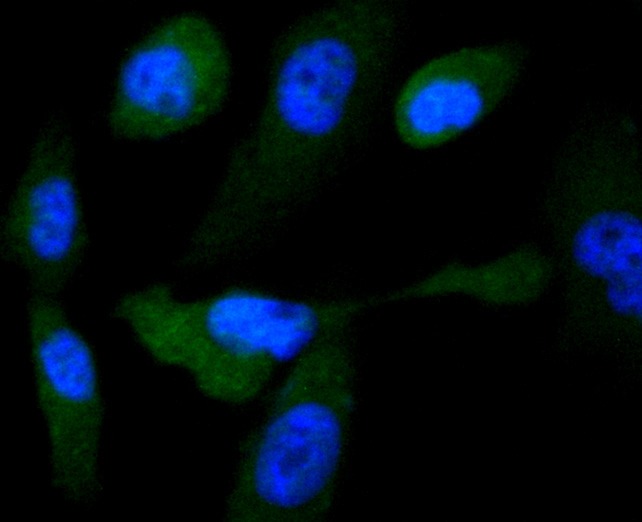 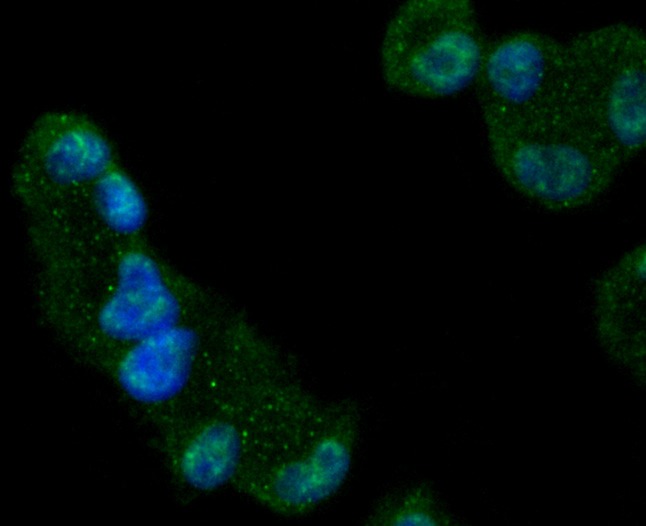 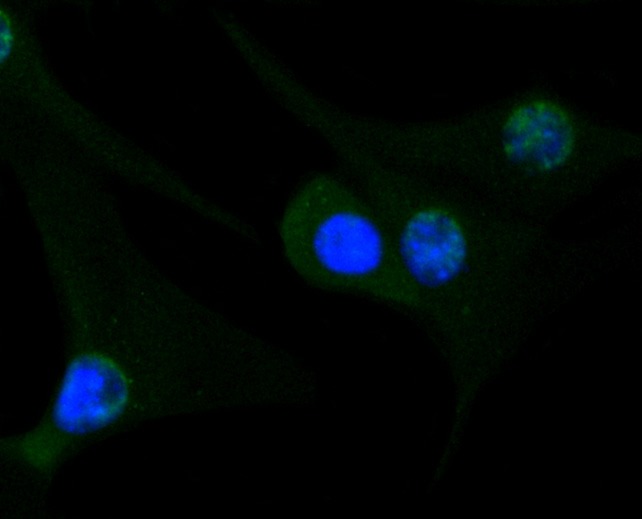  |
| Application | |
| Recommended Dose | WB: 1:1000; IHC: 1:50-200; ICC/IF: 1:50-200; FCM: 1:50-100 |
| Antibody Type | Monoclonal |
| Host Species | Rabbit |
| Construction | Recombinant Antibody |
| Purification | ProA affinity purified |
| Appearance | Liquid |
| Formulation | 1*TBS (pH7.4), 1%BSA, 40%Glycerol. Preservative: 0.05% Sodium Azide. |
| Research Background | Glycogen [starch] synthase belongs to the mammalian/fungal glycogen synthase family of proteins. Two forms of this protein exist, a liver form and a muscle form, both of which have the same function in the glycogen biosynthesis pathway. Glycogen synthase transfers the glycosyl residue from UDP-Glucose to the nonreducing end of α-1,4-glucan. The liver glycogen synthase protein is truncated by 34 amino acids compared to the muscle form. However, these enzymes differ significantly in their amino- and carboxyl-terminal regions. Muscle glycogen synthase serves to fuel muscular activity only and is regulated by muscle contraction and by catecholamines. Liver glycogen synthase mediates blood glucose homeostasis in response to nutritional cues. Defects in the gene encoding liver glycogen synthase results in glycogen storage disease type 0 (GSD0), a rare form of fasting ketotic hypoglycemia. |
| Conjucates | Unconjugated |
| Immunogen | Recombinant Protein |
| Uniprot ID |
| Molecular Weight | Theoretical: 84 kDa. |
| Stability & Storage | Store at -20°C or -80°C for 12 months. Avoid repeated freeze-thaw cycles. |
| Transport | Shipping with blue ice. |
| Size | Quantity | Unit Price | Amount | Operation |
|---|

Copyright © 2015-2026 TargetMol Chemicals Inc. All Rights Reserved.